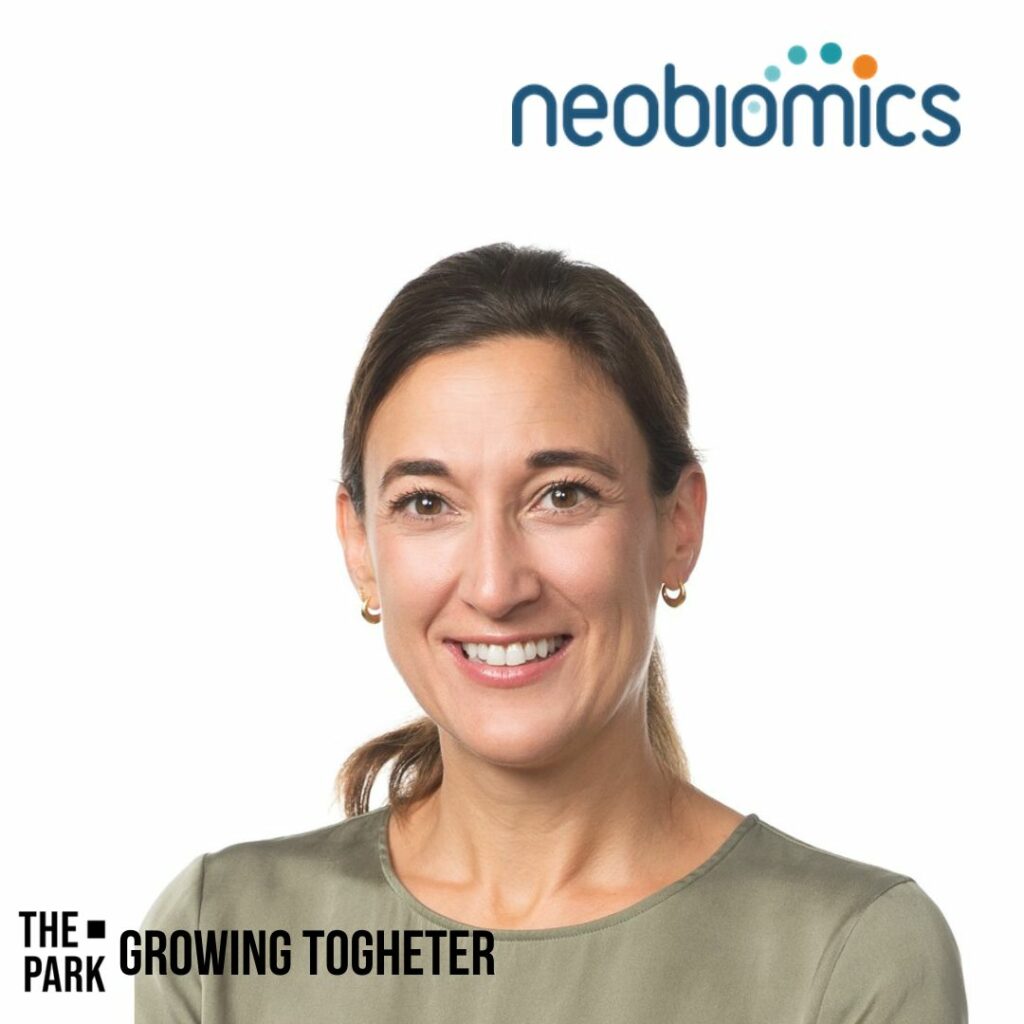We at The Park are thrilled to introduce Neobiomics, an innovative company that develops tailored nutritional solutions for pre-term babies. Recently, we had the pleasure of speaking with Emma Höglund, the CEO of Neobiomics, who shared the company’s journey and ambitions. Neobiomics, which often rents conference rooms here at The Park, has a clear vision of improving the health and quality of life for premature infants through scientifically evidenced products.
What Does Neobiomics Do?
Neobiomics is dedicated to creating nutritional solutions specifically designed for preterm infants (defined as babies born before 37 weeks of pregnancy are completed) with a particular focus on the unique requirements of premature babies. There is a large unmet need in this population and medicines as well as nutrition is often used off-label. For premature infants, meeting essential nutritional needs is critical, as it significantly impacts their growth, development, and overall health. Neobiomics’ approach is to find effective and safe solutions tailored for this very vulnerable patient group.
The Founding and Future Vision
Emma explains that the motivation behind Neobiomics’ founding was to make a meaningful difference for a highly vulnerable patient group – premature infants. The founder Stefan Johansson, a researcher and practicing neonatologist, saw a big need in his own practice which led to the development of the company’s first product, a safe multibacterial strain probiotic that supports early microbiota development. The company has a long-term vision to develop more solutions that solve for needs in neonatology. The latest product of Neobiomics involves supporting the neurological development and a normal vision function in preterm infants. This is also an area with increasing focus in the research community.
Overcoming Challenges in Developing Products for Premature Babies
Neobiomics’ products are based on research in neonatal care and nutrition. Emma highlights that one of the major challenges in developing effective solutions is the challenges of research involving premature infants with limited population size and difficult ethical considerations. Despite this, the company has succeeded in creating products that are both safe and effective, supported by multiple independent studies and research from leading university hospitals. In Sweden, we are lucky to have a unique national quality registry of premature newborns (SNQ), contributing a lot to the research.
Collaborations with Hospitals and Research Institutions
Neobiomics has established collaborations with several research groups and university hospitals worldwide, particularly in Sweden, the UK, France, Germany and Canada. Emma mentions facilitating a project with Karolinska Institutet, leading to an ongoing independent clinical trial that examines Neobiomics’ product in extremely preterm infants. The company also has an advisory board of international researchers and practicing clinicians who provide valuable insights and support to the company.
The Future of Neonatal Nutrition
When we asked Emma about the future of neonatal nutrition, she expressed excitement for the rapid advancements in the field. One of the most exciting trends is diagnostics enabling individualized nutrition plans. By monitoring growth and body composition of the baby as well as measuring the nutrients in the breast milk, an individualized diet can be given to support optimal growth and development. This is something that Emma and Neobiomics see as a significant future opportunity.
Impact on Newborns’ Health and Development
Neobiomics’ products aim to provide premature babies with the best possible start in life. Emma emphasizes the importance of nutrition during the first hours and days of life, as these early intakes can significantly impact the child’s future health and development. The company’s products not only support nutritional uptake but also promote neurological development and improve for example the vision.
Advice for Entering the Life Sciences Industry
As an economist by training, Emma is an example of how skills from various fields can help in the life sciences industry. She believes that enjoying working in this field requires stamina as it is a slow moving sector and a passion for improving people’s lives. For those with non-medical backgrounds interested in life sciences, Emma sees a great need for people with a commercial lens to help build and scale companies, particularly in the startup phase. Thinking about commercial models and financing is essential for creating sustainable solutions and attracting investments even from the get-go.
Life Sciences Startups: Key Considerations
Emma also shares valuable advice for life sciences startups. She points out that it’s often easy to overlook the commercial aspects in the early stages. It’s also about being selective in activities you do and prioritizing areas that provide the most value for the company’s success.
We look forward to following Neobiomics’ continued success and their efforts to improve neonatal care worldwide. With their innovative products and strong dedication to science, they are set to become a niche player in the life sciences sector.
If you would like to learn more about Neobiomics or their innovative solutions, don’t hesitate to reach out to Emma and her team. Neobiomics is open to networking, and we highly recommend connecting with them to gain insights into the future of neonatal nutrition and life sciences innovation.
